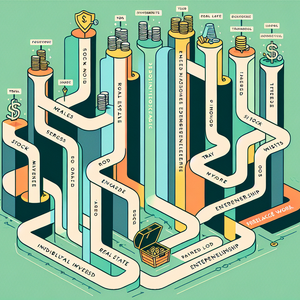Navigating Overtime Laws in the Gig Economy: Understanding Rights and Regulations

The gig economy encompasses a diverse array of jobs, including ride-sharing services like Uber and Lyft, food delivery platforms such as DoorDash and Grubhub, and freelance opportunities in areas like graphic design and online tutoring. A 2021 report by McKinsey indicated that nearly 36% of U.S. workers engage in some form of gig work, a trend that has accelerated due to the COVID-19 pandemic. While gig jobs offer appealing flexibility and independence, they often lack the standardized protections enjoyed by traditional employees, raising significant concerns regarding overtime compensation and overall worker welfare.
Understanding Overtime Laws
In the United States, overtime laws are primarily governed by the Fair Labor Standards Act (FLSA), which mandates that non-exempt employees must be paid time and a half for hours worked beyond 40 in a workweek. However, gig workers frequently find themselves in a complex gray area regarding their classification as independent contractors rather than employees. This designation typically excludes them from FLSA protections, including overtime pay. For example, a ride-share driver working long hours may not qualify for overtime pay simply because they are classified as an independent contractor, despite the fact that their workload could easily exceed the 40-hour threshold in a week. This misclassification creates a significant gap in protections for gig workers.
Challenges for Gig Workers
Gig workers face a multitude of challenges relating to their rights and compensation: 1. Misclassification of Employment Status: One of the most pressing issues is the misclassification of gig workers as independent contractors. This can lead to a lack of access to essential benefits, including overtime pay. A study conducted by the Economic Policy Institute found that approximately 10% of gig workers are misclassified, leaving them vulnerable to exploitation and inadequate compensation. 2. Lack of Awareness: Many gig workers are unaware of their rights and the intricacies of labor laws. The transient nature of gig work often means that these individuals do not have access to the same resources or information available to traditional employees. Consequently, they may find it difficult to advocate for their rights or seek recourse in cases of unfair treatment. 3. Inconsistent Regulations: The regulatory environment for gig workers varies significantly from state to state, creating a patchwork of laws that can confuse both workers and employers. For instance, California's Assembly Bill 5 (AB5) aimed to extend employee benefits to gig workers but faced substantial pushback and legal challenges. This inconsistency complicates the landscape, making it difficult for gig workers to understand their rights and protections.
The Need for New Regulations
As the gig economy continues to grow, there is an increasing consensus that existing labor laws must be updated to address the unique circumstances faced by gig workers. Advocates are calling for several key changes: 1. Clearer Classification Standards: Establishing clearer criteria for determining whether a worker should be classified as an employee or an independent contractor is essential. This would help protect gig workers and ensure they are entitled to the benefits they deserve, including overtime pay. 2. Minimum Wage Protections: Implementing minimum wage protections specifically designed for gig workers could help ensure fair compensation for their time, particularly during peak hours or high-demand periods. This would prevent gig workers from being underpaid and promote more equitable earnings. 3. Overtime Entitlements: Introducing provisions that allow gig workers to receive overtime pay after reaching a certain number of hours worked could provide them with greater financial security. Such regulations would also encourage a healthier work-life balance, enabling workers to manage their time more effectively.
The gig economy presents both remarkable opportunities and significant challenges for millions of workers seeking flexibility in their careers. However, the lack of clarity surrounding overtime laws and labor rights leaves many gig workers vulnerable to exploitation and confusion. As the workforce continues to evolve, it is crucial for lawmakers, businesses, and advocacy groups to collaborate in developing fair and equitable regulations that protect gig workers. By doing so, we not only enhance worker rights but also foster a more sustainable and productive gig economy that ultimately benefits society at large. The time for action is now, as we navigate the complexities of this new economic landscape.
Labor Rights Advocate
Economic Policy Institute, National Employment Law Project
Core Responsibilities
Advocate for the rights of gig workers and provide guidance on labor laws and regulations.
Conduct research and analysis on the impact of gig work on employee rights, focusing on misclassification and compensation issues.
Collaborate with policymakers and organizations to propose changes to existing labor laws.
Required Skills
Strong understanding of labor laws, particularly those affecting gig workers.
Excellent communication and negotiation skills for advocacy efforts.
Experience in public policy or social justice initiatives.
Gig Economy Research Analyst
Research organizations, think tanks, academic institutions
Core Responsibilities
Analyze trends and data related to gig work, including compensation, worker demographics, and job satisfaction.
Prepare reports and presentations to inform stakeholders about the implications of gig economy growth.
Monitor legislative changes and evaluate their impact on gig workers and employers.
Required Skills
Proficient in data analysis tools and methodologies (e.g., Excel, R, or Python).
Strong critical thinking and problem-solving skills.
Ability to synthesize complex information into accessible reports.
Human Resources Consultant (Gig Economy)
Consulting firms, HR service providers, large corporations
Core Responsibilities
Advise companies on best practices for hiring and managing gig workers within legal frameworks.
Develop compliance strategies to address worker classification and benefits.
Facilitate training for HR teams on gig economy regulations and worker rights.
Required Skills
In-depth knowledge of labor laws, specifically concerning independent contractors and gig workers.
Strong interpersonal skills to work with diverse teams and stakeholders.
Experience in HR management or consulting, particularly in the gig sector.
Policy Analyst (Labor and Employment)
Government agencies, think tanks, advocacy organizations
Core Responsibilities
Research and analyze labor market policies related to gig work and worker protections.
Draft policy recommendations to improve rights and benefits for gig workers.
Engage with stakeholders, including government agencies, to advocate for policy changes.
Required Skills
Strong analytical skills and familiarity with statistical analysis.
Excellent writing and presentation skills for policy briefs and reports.
Experience in public policy, ideally within labor or economic sectors.
Gig Platform Compliance Manager
Uber, Lyft, DoorDash
Core Responsibilities
Ensure that gig economy platforms comply with local, state, and federal labor laws.
Develop and implement internal policies to protect the rights of gig workers regarding pay and classification.
Monitor regulatory changes and adapt company practices accordingly.
Required Skills
Strong knowledge of labor regulations as they pertain to gig work.
Detail-oriented with strong organizational and project management skills.
Experience in compliance or regulatory affairs within the tech or gig industry.


